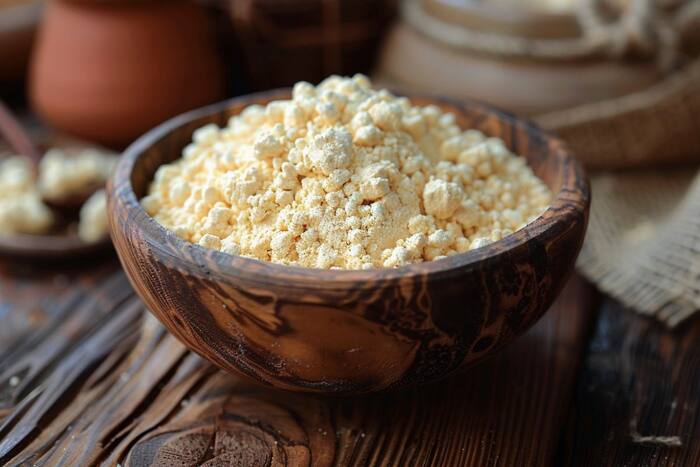
By clicking “Accept All Cookies”, you agree to the storing of cookies on your device to enhance site navigation, analyze site usage, and assist in our marketing efforts Cookies Policy.

Bajra flour, made from millet (specifically pearl millet), is a staple in many regions, particularly in India and parts of Africa. It is gaining popularity for its numerous health benefits. Here’s an in-depth look at the benefits of bajra flour:
Bajra flour is rich in essential nutrients:
– High in Fiber: It contains a significant amount of dietary fiber, which aids in digestion, helps maintain bowel health, and can prevent constipation.
– Rich in Proteins: Bajra flour is a good source of plant-based protein, making it an excellent choice for vegetarians and vegans.
– Vitamins and Minerals: It is rich in essential vitamins (such as B vitamins) and minerals like iron, magnesium, phosphorus, potassium, and zinc, contributing to overall health.
Bajra flour is naturally gluten-free, making it an ideal option for individuals with celiac disease or gluten intolerance. This allows people who are sensitive to gluten to enjoy baked goods and dishes without the adverse effects.
The high fiber content in bajra flour promotes satiety, helping to control appetite and reduce overall calorie intake. Including bajra in the diet can be beneficial for those looking to manage their weight.
The fiber in bajra flour aids in proper digestion and helps maintain gut health. It can prevent issues like constipation and promote a healthy digestive tract.
Bajra has a low glycemic index (GI), meaning it releases glucose slowly into the bloodstream. This quality makes it beneficial for people with diabetes, helping to regulate blood sugar levels and reduce spikes.
Bajra flour is rich in magnesium, which can help relax blood vessels and improve blood circulation. Additionally, its high fiber content can help lower cholesterol levels, thus reducing the risk of heart disease.
Bajra contains antioxidants that help combat oxidative stress and inflammation in the body. These properties can protect cells from damage and may reduce the risk of chronic diseases.
The presence of minerals like calcium, phosphorus, and magnesium in bajra flour is beneficial for maintaining bone health and preventing conditions like osteoporosis.
Bajra is a high-energy food due to its carbohydrate content. It provides a sustained source of energy, making it an excellent option for athletes and active individuals.
The antioxidants in bajra flour can also contribute to healthy skin by combating free radicals, which can lead to premature aging and skin issues.
Bajra flour can be used in various dishes, including rotis, porridge, pancakes, and even baked goods. Its versatility makes it easy to include in a balanced diet.
Bajra is a drought-resistant crop that requires less water compared to other grains like rice and wheat. Its cultivation can contribute to sustainable agriculture practices.
For breaking news and live news updates, like us on Facebook or follow us on Twitter and Instagram. Read more on Latest Dishes News on India.com.